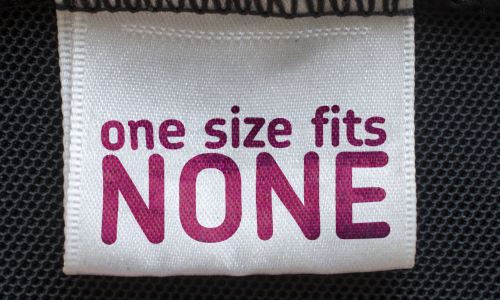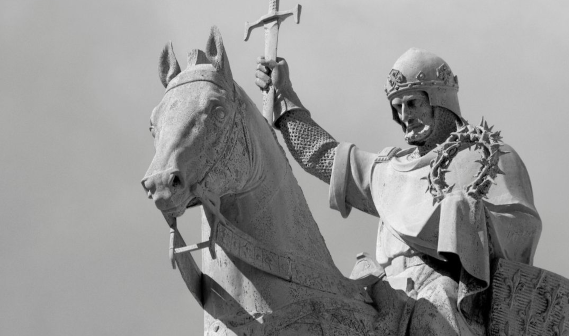How can we transform an organisation, if our leaders stay the same? New and emerging approaches to executive team coaching focus on who we are being and becoming, and not just what we are doing at work. The collective leadership approach is about developing self-awareness – clearly seeing the part you play in the system and how you embody the qualities you are asking of your team and organisation.
I remember an executive team meeting where we had developed a ‘transformative’ strategy for the next financial year. As part of this business transformation, we had designed a new operating model to deliver a superior customer experience, supported by new technology and people capabilities. Sound familiar?
As we were wrapping up the long two days together, I asked: ‘So, what are we going to do – as individuals and as a team – to disrupt our operating model, our way of leading together, to deliver a superior experience? What are the capabilities we need to develop collectively, to embody this business transformation we require?’
Radio silence followed.
That’s the thing about change as a senior leader – we can conceptualise business transformation, we can plan for it, we can influence others to deliver it – but can we embody it? When I conduct executive team coaching sessions, it’s clear that the executive team is very rarely the most transformative team – the one that disrupts itself, its sense of being, its identity, its capabilities, its leadership.
As executive teams we believe we can lead business transformation – we can understand the theory and apply models in our practice. But the question is, can we change who we are and how we operate, in line with the transformation we expect of the organisation?
For example, a leadership team might talk about the need to evolve our customer experience. But can they live the behaviours that underpin great customer experience? Do they deeply listen, empathise and understand customers – their lives, their challenges, their hopes and behaviours? Can they embody all of this in decision making or do they just think about customers as they make decisions?
These are two vastly different approaches, with vastly different outcomes. I believe executive team coaching must focus on the former – how we embody the transformation we are asking for.
Why leadership matters in business transformation
We know that businesses must excel at change to succeed in a world where uncertainty is the norm and the context is constantly moving. Instead of being good at one particular thing, companies must be exceptionally good at doing new things.
And yet, the vast majority of business transformation programs fail.
McKinsey surveyed 3,000 executives about their business transformation programs, finding that over 60% of business transformation programs are a failure. Those that succeeded set ambitious, clear targets; had strong leadership from the top; put a clear transformation structure in place; and created energy and ownership throughout the business.
I would argue that clear targets and a good structure are only effective where strong leadership, energy and ownership exists throughout the business.
As Ron Carucci puts it in the Harvard Business Review, ‘The pattern is clear, and diligent leaders often devote countless resources to planning out the perfect change management initiative. To raise the odds of success, however, my experience suggests the place that leaders need to begin their transformation efforts is not their organizations: It’s themselves.
‘Few leaders would disagree that personal transformation is an important building block of any successful change effort. Unfortunately, too many leaders want transformation to happen at unrealistic speeds, with minimal effort, and everywhere but within themselves.’
Any executive team coaching program must help leaders transform themselves – and not just once, but continually.
Transformational executive team coaching
Dutch Insurance business Ardanta embarked on a whole-organisation collective leadership development program in 2009. The time was ripe for business transformation. The challenges and opportunities facing the insurance sector were profound and included the digital revolution; competition from new channels; price transparency through comparison websites and a widespread mistrust of the financial sector following the global financial crisis.
The business needed to transform outdated distribution models, product portfolios and move from a shareholder model to a multi-stakeholder model which balanced the needs of Ardanta’s people, customers and shareholders. However, the management team was occupied with day-to-day demands and was not noticing or adapting to the changes in the external context. Ardanta’s people were disengaged, with ownership, accountability and power not distributed throughout the organisation.
The CEO worked with collective leadership experts Jane Weber and Roelien Bokxem to design and roll out a Collective Leadership Development program; which started with the Executive Team, and then rolled out throughout the entire business.
Alison Maitland writes about the results for Enlivening Edge: “…leaders and employees attest that it has led to a remarkable shift in culture from hierarchy and top-down control to participation and co-creation. ‘The value of it is in the way people have changed – the way they think and behave together,’ says Guido Horst, current CEO. ‘We felt that, if we didn’t make the change, we wouldn’t be here 10 years from now.’”
That’s a big call, but the business results back it up. As a result of the Collective Leadership Program, combined with Lean Six Sigma operational improvements, Ardanta saw a dramatic increase in productivity, a significant reduction in cost base, a drop in customer complaints and improvements on employee happiness and culture measures. In fact, they achieved that rare thing – a truly successful business transformation.
Executive team coaching – transformative questions
Questioning is a powerful way to spark reflection and examination of team structures, roles and dynamics. Here are a few questions I use as part of business transformation and executive team coaching, which you can use in your own team to open a discussion.
- Can we work with agility? Do we make iterative decisions? Do we take up different roles in teams?
- Can we let go of ego and the need to be the expert? Can we make mistakes, harness lessons and be vulnerable with our shortcomings?
- Can we be more human-centred? Can we connect more deeply with people, understand their strengths, desires, humanity and emotions and hold these, with our own, as we work in uncertainty?
- Can we unlearn old beliefs, skills and behaviours? Can we truly let go of what has made us successful, admitting it was skill built in the past for a different context, and humbly learn what is needed for this new emergent world?
If there’s one thing I’ve learned in my executive team coaching work, it’s that transformative and developmental practices for leaders aren’t learnt in business schools, in classrooms with theory and models and texts. They are learnt through experiences, designed into the work together where we play with new ways of being together.
Collective, transformational leadership involves letting go of parts of our identities that no longer serve us or the business transformation agenda – so we can embody the change we require of others and the organisation.
We can only truly lead the change, when we literally become the change.
Need help with executive team coaching?
Peta Karunaratne is a Leadership Circle Certified 360 and Collective Leadership Assessment Practitioner. If you’re looking for team coaching to support business transformation, the Karuna Collective can help. Whether you’re after group coaching, executive team coaching or collective leadership development, feel free to get in touch for a commitment-free discussion about your situation and your needs.
Image credit: Luca Bravo, Unsplash






